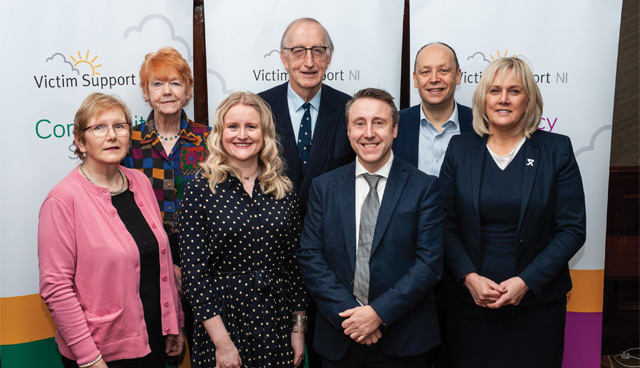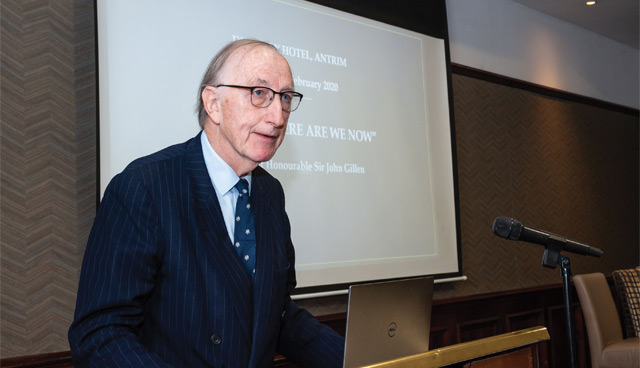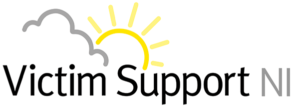Gillen Review: Where are we now?

Ten months after Sir John Gillen published his review into the law and procedures in serious sexual offences, Victim Support NI invited main agencies involved in the criminal justice system to examine what progress has been made on the review’s recommendations.
If one was to take a straw poll among those working in the justice arena, you would be pushed to find someone who hasn’t heard of the Gillen Review. In the wake of one of the most high-profile rape cases Northern Ireland has ever witnessed, Sir John Gillen’s expansive examination of the criminal justice system dominated policy discourse and news cycles alike from its launch until well after the final report was published.
Victim Support NI met with Sir John Gillen and contributed to the review during the consultation period. With almost 40 years’ experience helping victims of all crime types in Northern Ireland, our organisation has developed specialist support services for victims of sexual violence through our two accredited Independent Sexual Violence Advocates (ISVAs). Our ISVAs are trained to work solely with victims of sexual violence. They provide specialist support and advocacy to victims as they move through the often-lengthy process.
Given our involvement with supporting victims of sexual violence, we welcomed the recommendations published in the report and hoped that they would lead to a shift in how victims of sexual crime are treated by the criminal justice system. Ten months on since publication, we were keen to examine what progress had been made since the review recommendations were published. We invited the main agencies involved in the criminal justice system in Northern Ireland to take part in a conference which would put the Gillen review, and its impact, at the centre of the discussion.
Sir John Gillen and Dame Vera Baird, Victims Commissioner for England and Wales, were keynote speakers. They were joined by Peter May, Permanent Secretary for the Department of Justice; Stephen Herron, Director of Public Prosecutions; and Detective Chief Superintendent Paula Hilman, who heads up the Public Protection Branch of the PSNI. Workshops were also held to show the breadth of support services available to victims, and to highlight some of the issues affecting victims like legal representation, restorative justice and the obstacles faced by vulnerable victims.

Victim Support NI CEO Geraldine Hanna opened the conference by welcoming the almost 150 guests and calling for a combined approach to make sure the recommendations contained within the Gillen Review do not end up gathering dust on a shelf. Concentrating on the need for change from a victim perspective, she ensured the voice of victims was heard, using quotes from victims throughout her speech, such as “The system… I wouldn’t wish it on my worst enemy” and “I had no hope of ever getting my case to court because of the nature of the crime. This reality petrified me”.
Sir John Gillen then took to the stage to give his perspective on the impact of his review, saying that he felt things hadn’t moved on enough. He revealed that up to 83 per cent of victims do not report to police due to weaknesses in the system and a fear they won’t be believed, saying: “Women come up to me all the time and tell me they wouldn’t dream of reporting.” The main weaknesses in the system remain delays, rape myths, social media, consent, training, education and resources.
Permanent Secretary to the Department of Justice, Peter May then addressed attendees, to update them on the measures that have been taken by the department to implement the Gillen recommendations. He emphasised that “we need to make sure the changes we make are effective and sustainable” and reflected that the Department of Justice’s ambition would be for a cultural change.
Speaking next, Director of Public Prosecutions Stephen Herron confirmed this desire for change, as well as acknowledging the support victims require to come forward. “A cultural shift is needed across the system to ensure a better response to victims. The PPS have set out clear expectations of what evidence is required and provides advice for reasonable lines of inquiry. We are working to improve the balance of victim’s rights and what is needed to create a solid case,” he said. Herron recognised the need to meet with victims to explain why a case may not go to court, saying: “It’s not an easy conversation but it is necessary.”
Herron acknowledged that this sort of cultural and organisational shift would take time. “We need a holistic overhaul of how sexual offences are dealt with, adjournments should be the exception not the norm. Change will take time, but we can prioritise our understanding of how the criminal justice system can impact on the victim.”
The final speaker during the morning session was Paula Hilman, Head of the PSNI’s Public Protection Branch, who outlined steps the PSNI are making to facilitate change for the better. These include a working group set up within the PSNI to review use of technology; quality of response; review of facilities and the development of bespoke areas for questioning to improve the ABE response. Hilman also advised that the PSNI have put in place digital disclosure management documents, an improved training package and are conducting reviews in order to meet the recommendations.
The theme of optimism, cultural change and a recognition that a joined-up approach is needed across all agencies if we hope to provide sexual violence and rape victims in Northern Ireland with a service that meets their needs continued during the remainder of the conference. Victims Commissioner for England and Wales, Dame Vera Baird spoke about how initiatives in her jurisdiction have made improvements across the legal landscape in England and Wales. Her Northumbria Court Observers project published in 2016 provided the model for Victim Support NI’s similar project which has been running in Northern Irish courts during 2018-19. The preliminary findings of this project were presented at the conference by Victim Support NI Policy and Communications Manager Louise Kennedy, who revealed that the main issues observed in Northern Ireland courts were huge delays, problems with technology, rape myths and perceived juror engagement. The detailed results of this project will be published later this year.
Victim Support NI acknowledges the work that is being done by agencies across Northern Ireland in order to build on the recommendations of the Gillen Review and make things better for victims of sexual crime in the future. We will continue to be the voice for victims and monitor these developments to make sure that the promised cultural change becomes a reality.
If you have been affected by any of the issues discussed in this article, you can contact Victim Support NI during office hours on 028 9024 3133 or 028 7137 0086. There is more help and information available on their website www.victimsupportni.com
The Domestic and Sexual Abuse helpline offers free and confidential support 24/7 all year round on 0808 802 1414.
If you have been sexually assaulted, The Rowan is the 24-hour Sexual Assault Referral Centre (SARC) for Northern Ireland, located at Antrim Area Hospital. The Rowan offers medical examination, emergency contraception, sexual health screening and referrals onto counselling services, as well as support to contact the Police if desired. Call 0800 389 4424.






